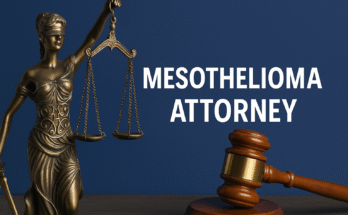Protect Your Investment: US Real Estate Lawyer Tips for 2025
The United States real estate market in 2025 continues its dynamic trajectory, presenting both enticing opportunities and formidable challenges for investors. From fluctuating interest rates and evolving zoning regulations to the increasing demand for sustainable properties, navigating this complex landscape requires more than just market savvy. To truly protect your investment, strategic legal counsel from an experienced real estate lawyer is paramount.
While the fundamental principles of property law remain constant, the nuances of federal, state, and local regulations are continuously refined. Economic indicators, technological advancements, and shifts in buyer preferences all contribute to a fluid environment where sound legal advice can mean the difference between a lucrative venture and a costly misstep. This article outlines essential tips from a US real estate lawyer, designed to safeguard your property investments in 2025 and beyond.
1. Master the Art of Due Diligence – Legally
Due diligence is the bedrock of any successful real estate investment. It’s not just about crunching numbers; it’s about uncovering potential legal liabilities and ensuring the property aligns with your investment goals. Your real estate lawyer in 2025 will guide you through:
- Comprehensive Title Examination: Beyond a basic title search, your lawyer will meticulously review the entire chain of title for any historical defects, liens (e.g., unpaid taxes, mechanics’ liens), easements, or restrictive covenants that could impact your ownership or future use. They will identify and help resolve any “clouds on title” before closing, preventing future disputes.
- Survey Verification: A professional survey ensures the property boundaries are accurately defined and identifies any encroachments from neighboring properties or onto public land. This is critical for preventing boundary disputes, which can be notoriously expensive and time-consuming.
- Zoning and Land Use Compliance: Understanding local zoning ordinances is vital. Your lawyer will verify the property’s current zoning designation and advise on any restrictions regarding its use, density, or future development potential. They will also assess whether any planned renovations or changes comply with local building codes and land-use plans. This is particularly crucial if you’re considering commercial development or a significant residential remodel.
- Environmental Assessments: For commercial or industrial properties, a Phase I environmental site assessment (ESA) is often a necessity. Your lawyer will help you understand the need for such an assessment and interpret its findings, identifying potential contamination or environmental liabilities that could lead to significant cleanup costs.
2. Crafting and Reviewing Ironclad Contracts
The purchase agreement is the most critical document in any real estate transaction. It’s a legally binding roadmap, and any ambiguity or oversight can have severe financial consequences. Your attorney’s expertise in contract law is invaluable:
- Customizing Purchase Agreements: While standard templates exist, your lawyer can draft or modify agreements to include specific contingencies that protect your unique investment interests. This might include clauses related to financing, property inspections, appraisal values, or even the sale of another property.
- Negotiating Favorable Terms: Beyond basic price, your lawyer will negotiate critical terms such as earnest money deposits, closing costs, repair responsibilities, and timelines, ensuring they are fair and aligned with your strategy. They can also advise on “as-is” clauses and their implications.
- Addressing Disclosure Requirements: State and federal laws mandate various disclosures from sellers (e.g., lead-based paint, natural hazards, known defects). Your attorney ensures these disclosures are properly made and advises you on any red flags they raise. In 2025, expect increasing scrutiny on disclosures related to climate risk and resilience, particularly in vulnerable regions.
3. Navigating Financing and Closing Complexities
Obtaining financing and completing the closing process involve multiple stakeholders and intricate legal steps. Your real estate lawyer ensures a smooth and legally compliant transaction:
- Loan Document Review: Before you sign, your attorney will review all loan documents from your lender, ensuring that the terms, interest rates, repayment schedules, and any prepayment penalties are clearly understood and acceptable. They can spot predatory clauses or discrepancies that might cost you down the line.
- Escrow Management: Your lawyer oversees the escrow process, ensuring that all funds and documents are securely held and disbursed only when all conditions of the contract are met. This minimizes the risk of fraud or misappropriation of funds.
- Closing Disclosure Review: This critical document details all financial aspects of the transaction. Your attorney will meticulously review it to ensure accuracy and identify any unexpected fees or charges.
- Deed and Recording: They ensure the deed properly transfers ownership to you and is correctly recorded with the relevant county office, establishing your legal ownership in public records.
4. Understanding and Mitigating Investment-Specific Risks
Different types of real estate investments carry unique legal considerations. Your lawyer can provide tailored advice for:
- Rental Properties: Drafting robust lease agreements that comply with local landlord-tenant laws, advising on eviction procedures, and understanding fair housing regulations.
- Commercial Properties: Navigating complex commercial leases, environmental regulations, zoning for specific business operations, and potential liabilities associated with public access.
- Development Projects: Assisting with land acquisition, securing development permits, navigating environmental impact assessments, and structuring joint ventures or financing agreements.
- Foreclosures and Short Sales: These distressed properties often come with unique legal baggage, including hidden liens or past ownership issues. Your lawyer’s expertise is crucial in mitigating these risks.
5. Staying Ahead of Regulatory Changes
The legal landscape is never static. New legislation, court rulings, and shifts in policy can significantly impact real estate investments. A proactive real estate lawyer in 2025 will:
- Monitor Legislative Developments: Keep an eye on potential changes in property tax laws, zoning regulations, environmental protection acts, and even building codes that could affect your investment strategies. For example, discussions around affordable housing mandates or stricter energy efficiency standards could influence future development costs.
- Advise on Emerging Issues: In 2025, issues like data privacy in smart home technologies, evolving regulations around short-term rentals (e.g., Airbnb), and the legal implications of climate change on coastal or flood-prone properties are becoming increasingly relevant. Your lawyer can advise on these nascent legal frontiers.
- Ensure Compliance: Help you maintain ongoing compliance with all relevant laws and regulations post-purchase, such as landlord licensing requirements, health and safety codes, or homeowners’ association (HOA) bylaws.
Conclusion
In the dynamic US real estate market of 2025, protecting your investment goes far beyond identifying a promising property. It requires a deep understanding of legal intricacies, meticulous due diligence, and strategic representation at every stage of the transaction. A seasoned real estate lawyer serves as your indispensable legal partner, identifying potential pitfalls, safeguarding your rights, and ensuring that your investment is not only financially sound but also legally secure. Don’t leave your significant real estate investment to chance; empower yourself with expert legal counsel to navigate the complexities and thrive in 2025.



